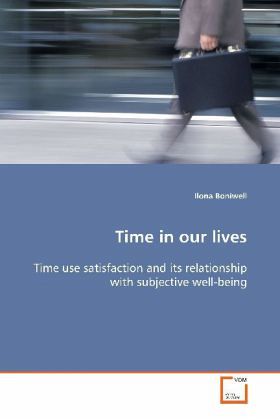
Time in our lives
Time use satisfaction and its relationship with subjective well-being
Versandkostenfrei!
Versandfertig in 6-10 Tagen
45,99 €
inkl. MwSt.

PAYBACK Punkte
23 °P sammeln!
Much research on time use has been based on assumptions about clock and calendar time. Less is known about how people experience their time use, what makes people satisfied with their time use and about the nature of the relationship between the use of time and well-being. This work addresses these questions though literature reviews of well-being and time-use and two empirical studies. These studieshighlight a number of factors contributing tosatisfaction with time use previously ignored or under-researched in the time use literature, including motivation for time use activities, perceived ba...
Much research on time use has been based on
assumptions about clock and calendar time. Less is
known about how people experience their time use,
what makes people satisfied with their time use and
about the nature of the relationship between the use
of time and well-being. This work addresses these
questions though literature reviews of well-being
and time-use and two empirical studies. These studies
highlight a number of factors contributing to
satisfaction with time use previously ignored or
under-researched in the time use literature,
including motivation for time use activities,
perceived balance in time allocation, taking
responsibility for one''s time, and the sense of
achievement. The findings suggest that in terms of
satisfaction with time use, time use interventions
might be more helpful if focused more on
psychological aspects of time use, and less on time
management techniques. They also indicate that the
extent to which one is satisfied with time use may
have important implications for their well-being.
assumptions about clock and calendar time. Less is
known about how people experience their time use,
what makes people satisfied with their time use and
about the nature of the relationship between the use
of time and well-being. This work addresses these
questions though literature reviews of well-being
and time-use and two empirical studies. These studies
highlight a number of factors contributing to
satisfaction with time use previously ignored or
under-researched in the time use literature,
including motivation for time use activities,
perceived balance in time allocation, taking
responsibility for one''s time, and the sense of
achievement. The findings suggest that in terms of
satisfaction with time use, time use interventions
might be more helpful if focused more on
psychological aspects of time use, and less on time
management techniques. They also indicate that the
extent to which one is satisfied with time use may
have important implications for their well-being.












